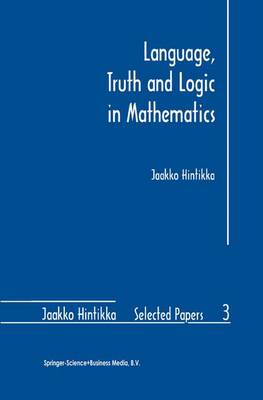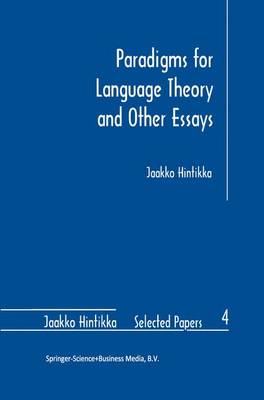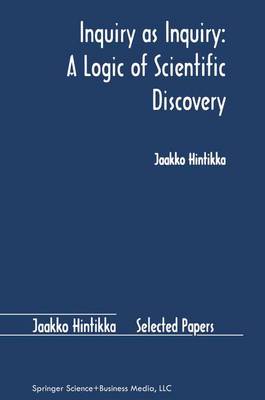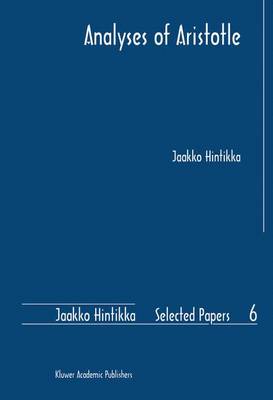Jaakko Hintikka Selected Papers
5 primary works
Book 1
Vol. 1: Ludwig Wittgenstein: Half-Truths and One-and-a-Half-Truths
Because of his legendary impatience, Wittgenstein's published books are focused on his solutions to his latest problems and consequently often fail to explain not only his earlier solutions but also his problem situation. In the essays collected in this volume, Jaakko Hintikka counteracts the difficulty which this peculiarity of Wittgenstein's poses to his readers by analysing in depth the crucial stages of Wittgenstein's philosophical career and the relation of his ideas to those of other philosophers, especially Russell, Carnap and Husserl, with sometimes surprising results.
Vol. 2: Lingua Universalis vs. Calculus Ratiocinator
Twentieth-century philosophy has tacitly been dominated by a deep contrast between universalist and model-theoretical visions of language. The role of this contrast is studied here in Peirce, Frege, Wittgenstein, Carnap, Quine, Husserl, Heidegger and in the development of logical theory. Hintikka also develops a new approach to truth-definitions which strongly supports the model-theoretical view.
Vol. 3: Language, Truth and Logic in Mathematics
The foundations of mathematics are examined by reference to such crucial concepts as the informational independence of quantifiers, the standard-nonstandard distinction, completeness, computability, parallel processing and the extremality of models.
Vol. 4: Paradigms for Language Theory and Other Essays
Several of the basic ideas of current language theory are subjected to critical scrutiny and found wanting, including the concept of scope, the hegemony of generative syntax, the Frege-Russell claim that verbs like `is' are ambiguous, and the assumptions underlying the so-called New Theory of Reference. In their stead, new constructive ideas are proposed.
Vol. 5: Inquiry as Inquiry: A Logic of Scientific Discovery
In the essays collected here, Hintikka both defends and outlines a genuine logic of scientific discovery, the logic of questions and answers. Thus inquiry in the sense of knowledge-seeking becomes inquiry in the sense of interrogation. Using this new logic, Hintikka establishes a result that will undoubtedly be considered the fundamental theorem of all epistemology, viz., the virtual identity of optimal strategies of pure discovery with optimal deductive strategies.
Vol. 6: Analyses of Aristotle
This collection comprises several striking interpretations of Aristotle's logic and methodology that Jaakko Hintikka has put forward over the years, constituting a challenge not only to Aristotelian scholars and historians of ideas, but to everyone interested in logic, epistemology or metaphysics and in their history.
Book 3
Book 4
Book 5
Book 6




